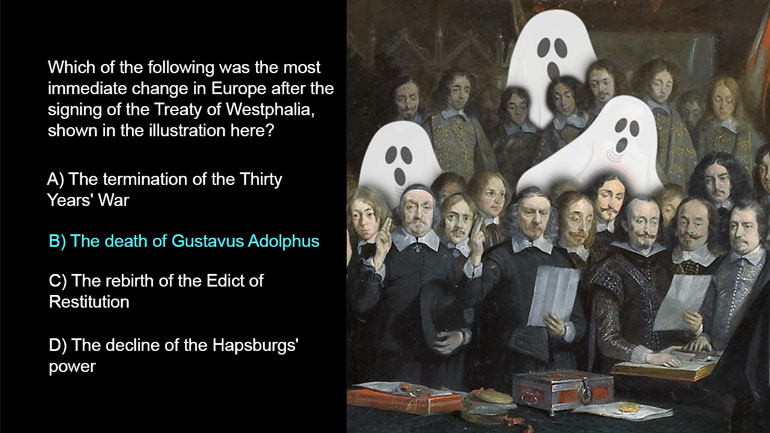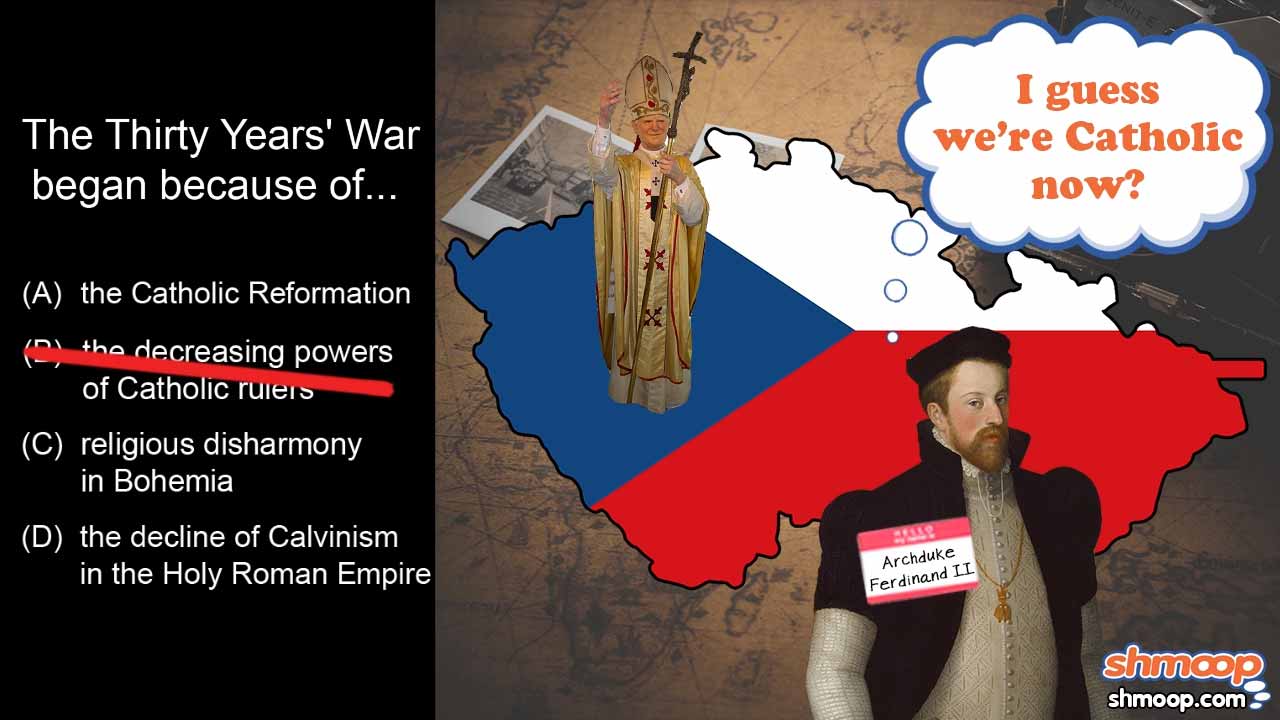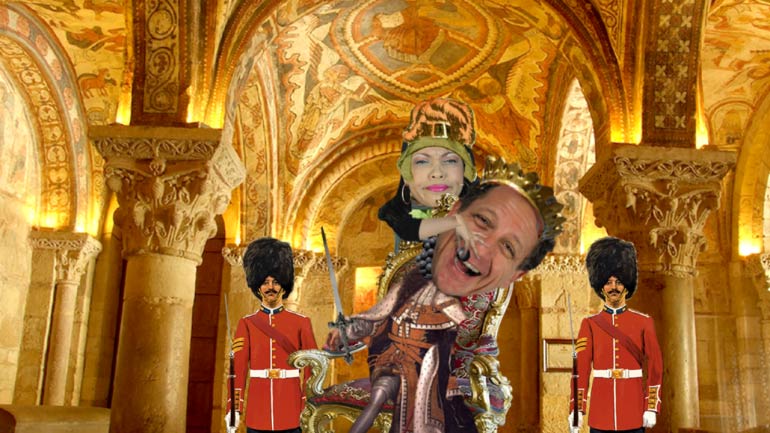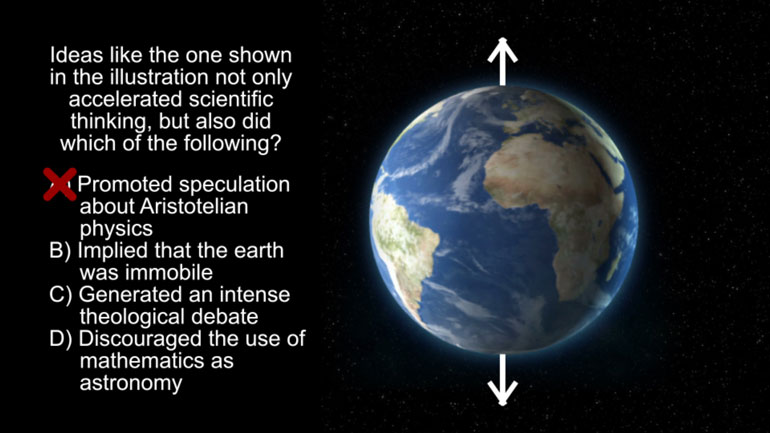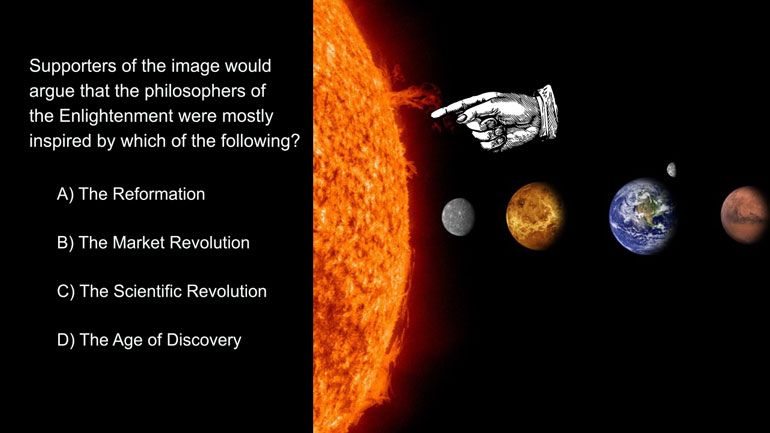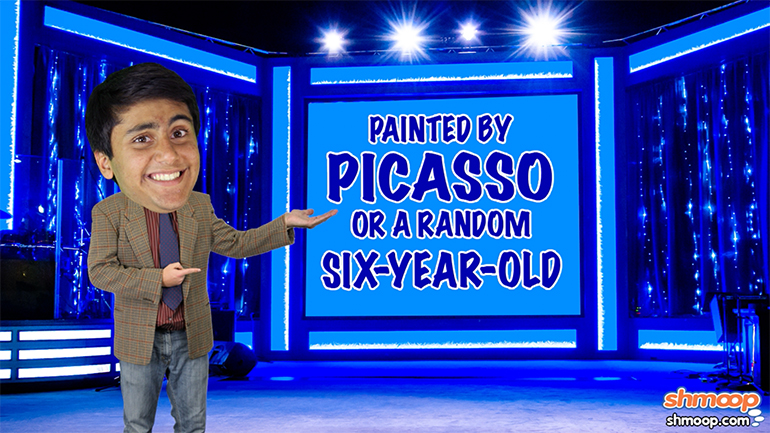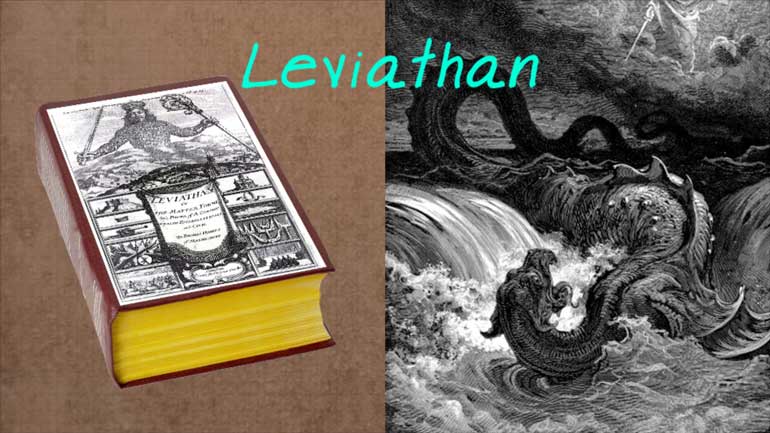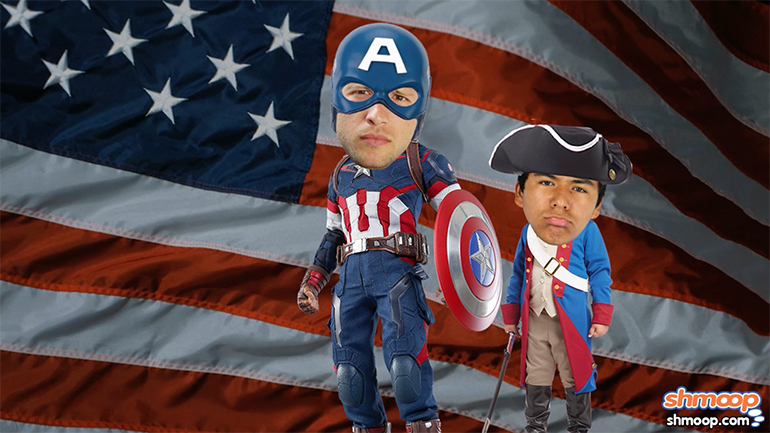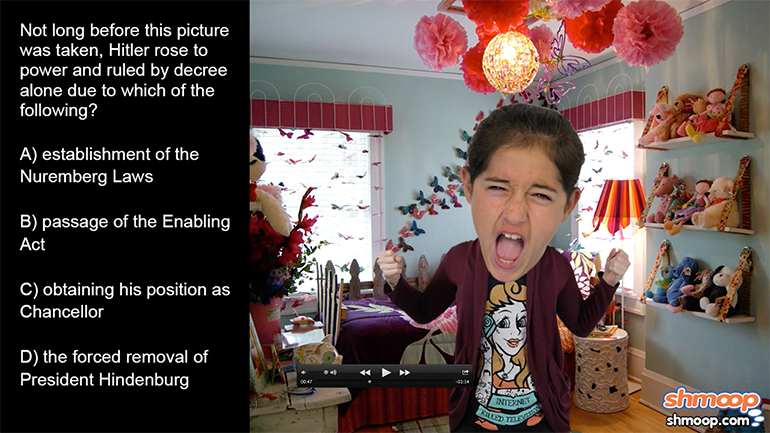ShmoopTube
Where Monty Python meets your 10th grade teacher.
Search Thousands of Shmoop Videos
AP European History Videos 26 videos
AP European History 1.5 Period 1: 1450-1648. Machiavelli's The Prince was similar to Thomas More's philosophy because it...what?
AP European History 2.3 Period 1: 1450-1648. Which of the following was the most immediate change in Europe after the signing of the Treaty of West...
AP European History 2.2 Period 1: 1450-1648. The man portrayed in the image was previously motivated to tack the Ninety-five Theses on the doo...
AP European History 2.1 Period 3: 1815-1914 203 Views
Share It!
Description:
AP European History Period 3: 1815-1914 Drill 2, Period 1, Les Demoiselles d'Avignon represented the beginning of which of the following art movements?
Transcript
- 00:03
Here's your shmoop du jour brought to you by Pablo Picasso
- 00:06
star of shmoop's new hit game show painted by Picasso or a random six-year-old [Man pointing to a game show board for Painted by Picasso]
- 00:12
we'll get someone to play with us one of these days all right I'll take a look at
- 00:18
the image right there not by a six-year-old here's the question Les
- 00:22
Demoiselles d'Avignon represented the beginning of which of the following art [Le Demoiselles d'Avignon painting]
Full Transcript
- 00:27
movements and here your potential answers [mumbling]
- 00:31
Oh we forgot to add E) weirdism and F) creepyism but those would
- 00:38
all be way too obvious so let's just stick with the original form instead of
- 00:42
trying to work out the answer by looking at the art because well we need a break [Woman in art picture staring]
- 00:45
from the freaky stare coming at us from the squatting creeper there in the
- 00:49
corner let's use the date as a starting point if Pablo painted this in 1907
- 00:54
would that date fit with the timeline for A) futurism? Well, not quite seeing as
- 00:59
futurism and art movements that played with new advances in digital technology [men delighted with a TV]
- 01:04
didn't come out until about well 1909 and we know what you're thinking digital
- 01:08
technology in 1909 but err well people we're not talking about adobe photoshop
- 01:13
and macbooks here in this context we mean that the art was a commentary on [People looking at paintings]
- 01:17
new advancements like the car and the airplanes which is for the better really
- 01:22
because we'd hate to have seen Picasso's brilliant brushstrokes being replaced [Painting of a Picasso's image]
- 01:26
with a much more convenient and just as lazy.. brushstrokes photoshop filter
- 01:31
there yep, we use it here at shmoop all the time. Impressionism doesn't fit
- 01:34
timeline either seeing as it was prominent in the 1870s and 1880s well
- 01:39
before this work was even started impressionist artists communicated their [Claude discussing the brush stroke]
- 01:43
perspective on the mundane through their work painting images of natural
- 01:47
landscapes, daily life and portraits of your third period history teacher like [History teacher unimpressed holding a ruler]
- 01:52
that Fauvism was a short-lived art movement that lasted from 1904 to 1908
- 01:58
which yep, fits the dates for this painting it also emphasized strong color
- 02:03
and unrealistic values which also might sound accurate however when we say [Colorful painting and girl appears]
- 02:08
strong color we mean strong like Dwayne the rock Johnson
- 02:12
these colors make Picasso colors look well Michael Cera strong in comparison [Dwayne Johnson and Michael Cera together]
- 02:17
not our answer Picasso's surreal dissonant and fantastical art marked the
- 02:22
period of modernism that was popular throughout the late nineteenth and early [
- 02:27
twentieth centuries. Its best associated with art where traditions were thrown [Man painting]
- 02:31
out the window in exchange for experimentation which definitely
- 02:34
describes this painting now Pablo maybe next time you could experiment with
- 02:38
something a little less terrifying you know like a nice portrait of an
- 02:42
absolutely horrifying weeping woman great just great glad you're taking your [A painting of a weeping woman]
- 02:46
public's notes to heart.
Related Videos
AP European History Period 1: 1450-1648 Drill 2, Problem 1. As a result of the meeting in the image, which of the following occurred?
AP European History Period 3: 1815-1914 Drill 2, Problem 4. Paintings like the one depicted above were a direct reflection of what?
AP European History 1.2 Period 4: 1914-Present Not long before this picture was taken, Hitler rose to power and ruled by decree alone due to which...
AP European History 1.4 Period 3: 1815-1914. As evidenced through the passage above, Karl Marx was a passionate leader and is considered the father...
AP European History 1.1 Period 4: 1914-Present. A person who supported actions such as the one shown in the image would have supported The Final So...

